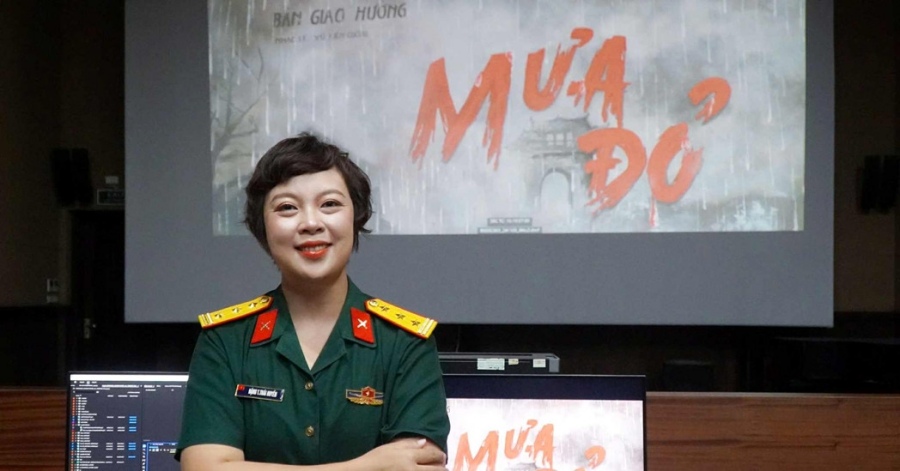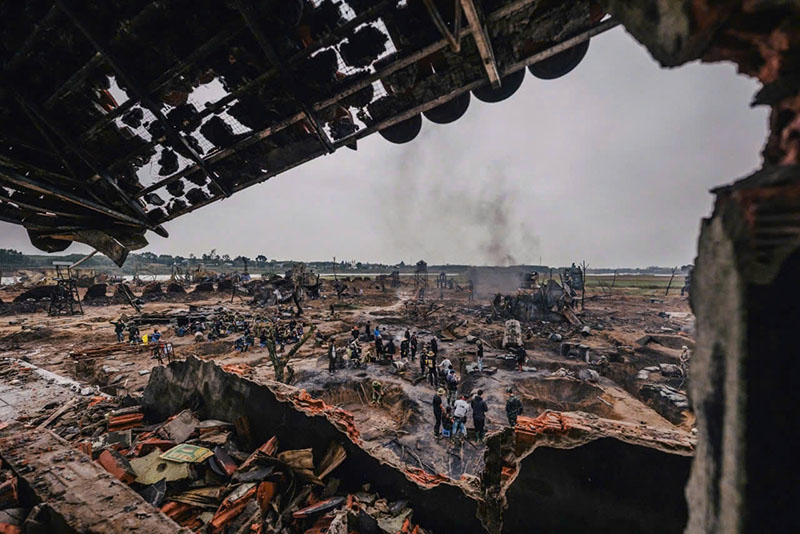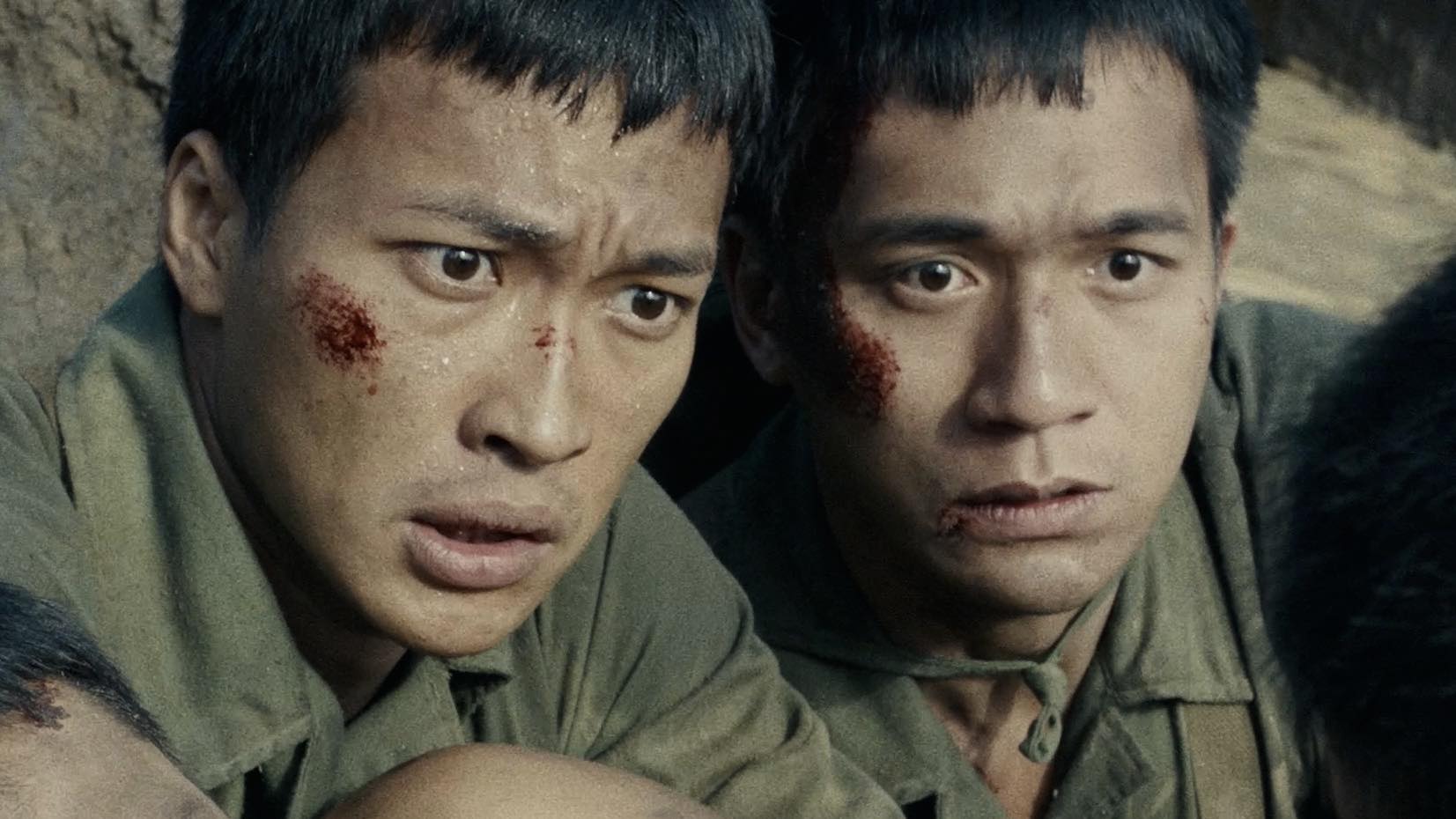The film "Red Rain" has a historical revenue for a historical film project. How does the revenue of "Red Rain" affect you personally?
- Revenue is an important factor. But "Red Rain" has a more important political task, which is to celebrate the 80th anniversary of the successful August Revolution and National Day on September 2. We want the audience to come to the cinema and learn more about the resistance war of our ancestors. That is the biggest task of the "Red Rain".
There have been many opinions about making war films and historical films that are hard and expensive, but after the Red Rain was accepted, will you dare to branch out into other war film projects in the future?
- As a director and a soldier, I never refuse the task. The post-war and revolutionary war films are the genre that I have pursued throughout my career. If there was a good, attractive script that brought me a lot of emotion, I would not refuse that opportunity.

Like when filming "Red Rain", she once shared that it took her 1 year to clear the bombs and mines. Looking back on that journey, how do you feel?
- An expert once estimated that it would take 100 years to completely destroy the bombs and mines in the ancient citadel of Quang Tri.
The area where we set up the studio was also a place that had been bombed a lot. The studio is several hectares wide, not only digging the ground but also digging deep below to avoid scenes with a fire-and- explosion effect that could detonate bombs deep underground.
A year before filming, the Engineering team had arrived at that location before completely clearing the film crew's safety. "Red Rain" has been carefully prepared, to have 81 days and nights of filming - the film has had a long time of preparation.
"Red Rain" was filmed for 81 days - coinciding with 81 days and nights of defending the ancient citadel of Quang Tri in 1972, It is known that those are days of heavy rain and cold weather. Watching the film can also feel the hardship of the film crew and the actors. Have you ever felt heartbroken when an actor filmed in extremely difficult conditions while sitting at the monitor?
- It can be revealed that "Red Rain" is a film in which I hardly sit on the monitor (monitoring/ shooting support screen). I held the wireless device and stood directly at the studio. I was present with the actors, experiencing their joys, sorrows and sufferings.
I see the rol and efforts of the actors to complete my role. Because, to play the "quality" of soldiers going through fierce battle, having to remember the lines in unfavorable weather conditions... is a big challenge.

During the long preparation period for the film, what are the behind-the-scenes photos and documents about the battle in Quang Tri ancient citadel for you?
- On my desk, there is a stack of documents about the stories in Quang Tri ancient citadel. That is not to mention many archived documents of the People's Army Cinema. I watch and read many documents, from which there is energy and inspiration. When I put those things on screen, I confront myself to filter and keep the most valuable details.
When meeting historical witnesses, I understood that the battle in the ancient citadel of Quang Tri was just one of many major battles. I collect good stories to put into films and the audience can recognize an image, a situation similar to other battles.
I want to say that the story of war is not only in Quang Tri but also the pain and loss of the whole nation. I hope there will be more directors making revolutionary films and they will tell different stories about the nation's important battleground war.
When "Red Rain" was released in theaters, many people compared the film to some other works about war. And besides the iconic images of the film, there are still people who think that the ending of the film is still heavily promotional. What do you think about the audience's debates?
- I always try to harmonize the propaganda and entertainment and commercial aspects. This film is just a slice, unable to paint an overall picture, very fierce and tragic of the battle.
Before becoming a director, I was a soldier, an artist in the ranks of the People's Army Cinema, my first task was to serve political and propaganda work. And the film is made towards the 80th anniversary of National Day, which is an important political task. As both a director and a soldier, I have to complete this criterion.
Second, I know that, to make the film, the Central Military Commission and the Ministry of National Defense gave us great favor and created great conditions for us. To bring the film to theaters, it has shown a change and openness in the way historical and war films are made.

"Red Rain" is not only praised for its large-scale scenery and iconic beauty, but also for the close-range scenes of the characters' confrontation. Can you reveal the behind-the-scenes of these scenes?
- It is a fact that many scenes in the film were filmed by a crew of up to 300 people. The scenes featured the coordination of military branches with the contribution of 1,000 people. The big scenes have the presence and support of soldiers, helping the film crew ensure safety.
With the action scenes, the actors had time to practice carefully, both military training and martial arts training.
When watching the film, many people praised that she was very healthy enough to complete a film like "Red Rain". In your opinion - a female director, to make a war film, is health or talent more important?
- After completing the film "Red Rain", I received a lot of encouragement from my seniors and seniors. I think talent or health are important, but the most important thing is spirit.
When at the studio, we have to be steadfast, let our teammates look at us and continue working.
I can cry or feel exhausted, but I just stay at my resting place.
When on set, no matter what happened or how much pressure, the director must still maintain stability.
What is the biggest lesson you learned after making a war film like "Red Rain"?
- The biggest lesson I have learned is probably that a director would never be able to make a successful film without the support of the crew.
In particular, with a major war film project like "Red Rain", I have the resonance of many colleagues.
They said that they did not consider this a film but considered this a big match and they will fight with me to win this match. That was a great motivation for me.










